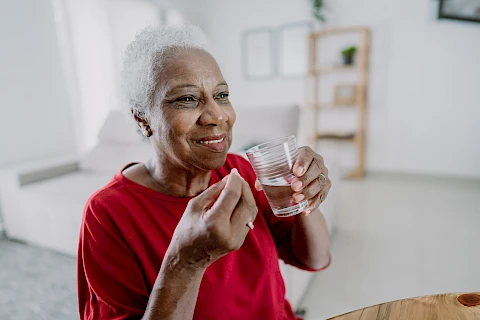
As we welcome the blossoming beauty of spring, it's vital to remember the value of maintaining good health, including vitamin D for seniors. Also called the sunshine vitamin, it plays a significant role in many bodily functions. However, with the arrival of spring, maintaining adequate levels can be tricky. Even while the days get brighter, sunlight exposure may still be insufficient. Using the right strategies and solutions can prove critical in increasing vitamin D levels.
The Role of Vitamin D in Elderly Wellness
Vitamin D for seniors is essential as it provides numerous health benefits for individuals in this age group. It supports bone health by aiding calcium absorption, which is crucial for loved ones more susceptible to fractures. It also boosts immune function, helping to ward off infections, and enhances mood, preventing feelings of sadness or depression. Golden agers are at higher risk for vitamin D deficiency due to reduced skin synthesis from sunlight, fewer outdoor activities, and dietary limitations.
Safe Sun Exposure for Older Adults
Sunlight is a natural and efficient source of vitamin D for seniors. Spending time outside can significantly boost levels. However, it's essential to balance sun exposure with safety. Experts issue several common recommendations.
- Morning and late afternoon are the best times for sun exposure, avoiding the harsh midday sun.
- Aim for about 15 to 30 minutes of sun a few times a week, focusing on arms, legs, or face. However, duration can vary by skin tone and health conditions.
- Use sunscreen for extended sun exposure to protect the skin and monitor those with mobility issues who might need assistance moving around or positioning.
Talk to a doctor about the right way to get sun safely.
Dietary Sources of Vitamin D for Seniors
Diet plays a crucial role in maintaining proper vitamin D levels. With some planning, golden agers can easily include vitamin D-rich foods like fatty fish (salmon, mackerel) and fortified items (milk, cereals, orange juice, egg yolks). For those with dietary restrictions or preferences, adding these foods to smoothies or meals can make them more enjoyable.
Considering Supplements
In some cases, sunlight and diet may not provide sufficient vitamins, making supplements beneficial, especially for older adults. Choosing the right type and dosage is essential, with vitamin D3 preferred for better absorption. Always consult healthcare providers before starting any supplement to ensure safety and appropriateness.
Role of Caregivers in Supporting Vitamin D Intake
Caretakers are vital in helping those in their care maintain adequate vitamin D levels. This includes monitoring dietary intake, encouraging outdoor activities, scheduling regular check-ups to assess levels, and adjusting care plans as needed. They also provide reminders about supplement intake and discuss the importance of this nutrient with healthcare professionals.
Offer Seniors More Assistance
To get optimal vitamin D for seniors, following our guide and talking to your doctor before making any changes in your daily routines would be best.
At Senior Helpers Lafayette, we understand the unique challenges in Lafayette, New Iberia, Morgan City, Abbeville, and Jennings, particularly regarding the sunshine vitamin. We provide personalized in-home care solutions tailored to each of their needs. Contact us today to learn more.